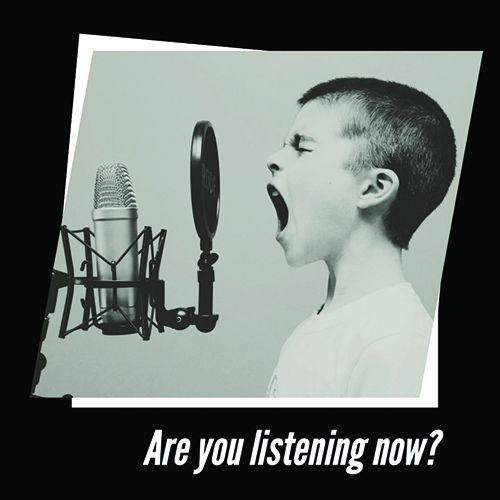You’re not listening

Kate Murphy’s new book ‘You’re Not Listening‘ explains how only by listening well can we truly connect with others. Donna Crockatt investigates how we can all learn to become better listeners
When was the last time you really listened to someone, or someone really listened to you? At work, we’re taught to lead the conversation. On social media, we shape our personal narratives. At parties, we talk over one another. So do our politicians. We’re not listening. And no one is listening to us. Now more than ever, we need to listen to those around us. Listening has the potential to transform our relationships and our working lives, improve our self-knowledge, and increase our creativity and happiness. While it may take some effort, it’s a skill that can be learnt and perfected.
Kate Murphy’s new book ‘You’re Not Listening‘ explains how only by listening well can we truly connect with others. She suggests that many of us – absorbed in our own thoughts and dreams, find ourselves occupying our own digital bubble – not listening to the outside world. She believes that bad listeners are not necessarily bad people, but being unable or unwilling to listen is not an attractive characteristic. Everyone has a great story to tell if only you could be bothered to talk to them properly and listen to what they had to say. Everybody is interesting if you ask the right questions.
We have a tendency to anticipate what the other person is going to say and reply before they have even had the chance to express it the way they want to. Good listeners engage, treat questions seriously and try to have a proper conversation. Curiosity is a crucial characteristic of the good listener but sadly people are so intent on expressing their own opinion, or they’re so distracted by technology or by their own thoughts, that it’s making us isolated, misinformed and intolerant. The fact that we are spending so much time communicating electronically means we are losing the ability to pick up all those face-to-face clues. Without them Murphy states: “You’re not going to get the full context and nuance of the conversation. The effects of bad listening are profound. Anyone who has shared something personal and received a thoughtless or uncomprehending response knows how it makes your soul want to crawl back into its hiding place. Whether someone is proposing an idea, sharing a dream, revealing an anxiety or recalling a significant event – that person is giving up a piece of him or herself. And if you don’t handle it with care, the person will start to edit future conversations with you, knowing ‘I can’t be real with this person’.”
Apparently, to be able to listen effectively, you have to get rid of your own ego, your own thoughts. Murphy believes that our growing failure to listen has dire political consequences because we are no longer willing to engage with our opponents’ point of view People are intent on demonising each other, it’s not just that they don’t agree.
You can’t start listening if you think the other person fundamentally an idiot or a bad person. She says you only grow when you listen to opposing viewpoints – a powerful argument for escaping from our social-media echo chamber. If this is the case surely we must relate this to the workplace, savvy small-business owners understand and appreciate the importance of developing employee listening skills to their fullest. The ability not only to listen, but to listen actively is essential to working individually or in a team environment. A small business can never afford to alienate its customers. Well-developed listening skills impact customer interactions and depending on the situation may determine whether customers stay or go. Listening is about empathy, asking the right questions, being patient and giving people the time and space to tell their stories in the way they want to, offering odd words of encouragement, but not interrupting the flow and not feeling the need to fill every silence. We can all learn to become better listeners, but fundamentally the real art of listening lies in caring, profoundly caring, about what you are being told and about the person who is telling their story.
You’re Not Listening: What You’re Missing and Why It Matters Hardcover by Kate Murphy. Publisher: Harvill Secker. 288 pages.











